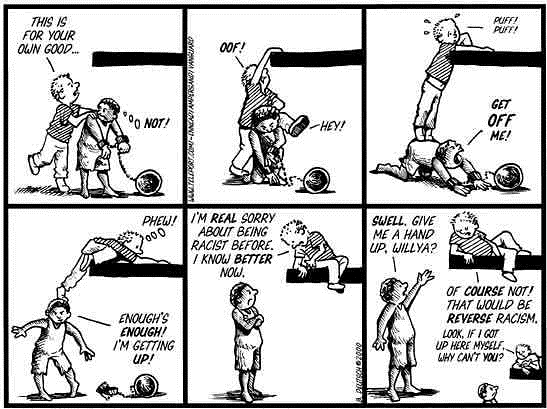Argument
Both parts of the audio listening's called "This American Life" talk about education reform, the various issues and problems, and what can be done. The difference is that not every schooling deals with the same issues as the other school thus its brings into the picture what is at the root of these problems. The difference sometimes and often picked out is the separation of races. White students attend schools of good nature and a school system that is achieving where students of color are attending schools who are just trying to stay afloat and struggling mightily. Trying to make moves to be a "good school isn't so easy and just to buy into that belief is hard because it is almost like it presents false hopes. Taking each school and comparing them and the different aspects for that can contribute to growth is important. Then learning from those different aspects that makes the school function smoothly and using them to create opportunities is how a school can at least take a step toward the "good side". The problem we all live with is the lack of opportunities for everyone and the inequality among racial groups who aren't always offered the best chances at success. For example in Jonathan Kozol's amazing grace article he talks about how students are from the same run-down neighborhood and they hopes are diminished and the thought of even making it out of school is far fetched. Its not about integrating schools and making an even playing field but rather fixing the real issue of the problem and solving what is wrong with the lower achieving schools and making them into "good" ones. I believe integration may be able to shift success in schools but may also have some backfire in terms of trying to just integrate students and just assume success will happen.
Bob Herbert argues in Separate and Unequal that the disparities of race in schools are due to affordability of housing, and economic and past occurrences that create a deep separation of races among school settings. He also brings up points about integration wont work because people don't want to become part of the problem and that racial occurrences can hurt rather than help the issue. He says that it would be better to help poor people of color and allow them to achieve success in the school setting as well but it has to happen from within, at the source of the problem. No matter what race, background or status in society they come from the opportunity is what matters and what makes the chance for success. Brown v board of education allowed for equality among all students no regards to race and now the opportunity for success has to occur no matter what. No integration or not.
Connections: This article related to Kozol because it talks a lot about the racial disparities and inequalities and how the lack of opportunities create a sense of hopelessness. Also the place or status in which you start in in society is hard to get out of and that is true in Herbert's writing as well.
Points to share/ Discuss: Achievement and success may or may not have to due with race. What if students of color who were of the same economic status as a white family went to a colored school. Would they be able to succeed in the "bad school"?
Points to share/ Discuss: Achievement and success may or may not have to due with race. What if students of color who were of the same economic status as a white family went to a colored school. Would they be able to succeed in the "bad school"?

Corey, I think you summed up the main idea of the radio shows really nicely. It's not really an issue of race in most cases. It's a problem of lack of opportunity or resources that brings down the overall moral of the students and staff. My service learning school is 163 out of 168 in the state and because the teachers are really dedicated, the classroom doesn't have an overwhelming dismal feel.
ReplyDeleteCory, I think you did an awesome of job connecting Herbert's article to Kozol. While I was reading Herbert's article I heard so many of Kozol's ideas discussed. I also found your question about white children being placed in a school of mainly students of color really interesting. I think that if it were that way, the white students would also succeed. I believe that white students can learn just as much as their peers of different races. I think it would be extremely beneficial to all races and would give them all a chance to appreciate one another.
ReplyDelete